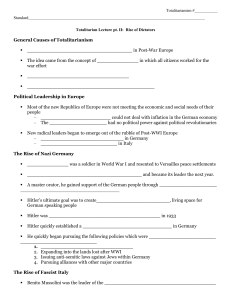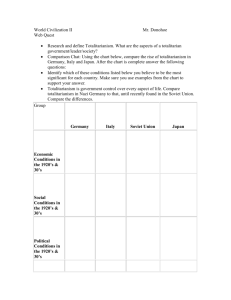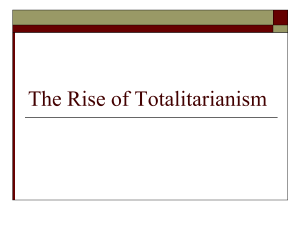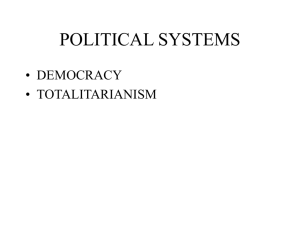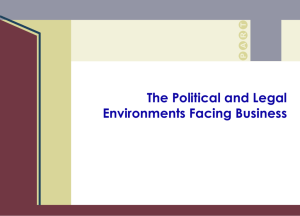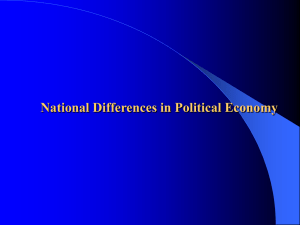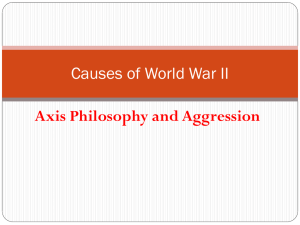Paul Anderson (School of Law, University of Warwick)
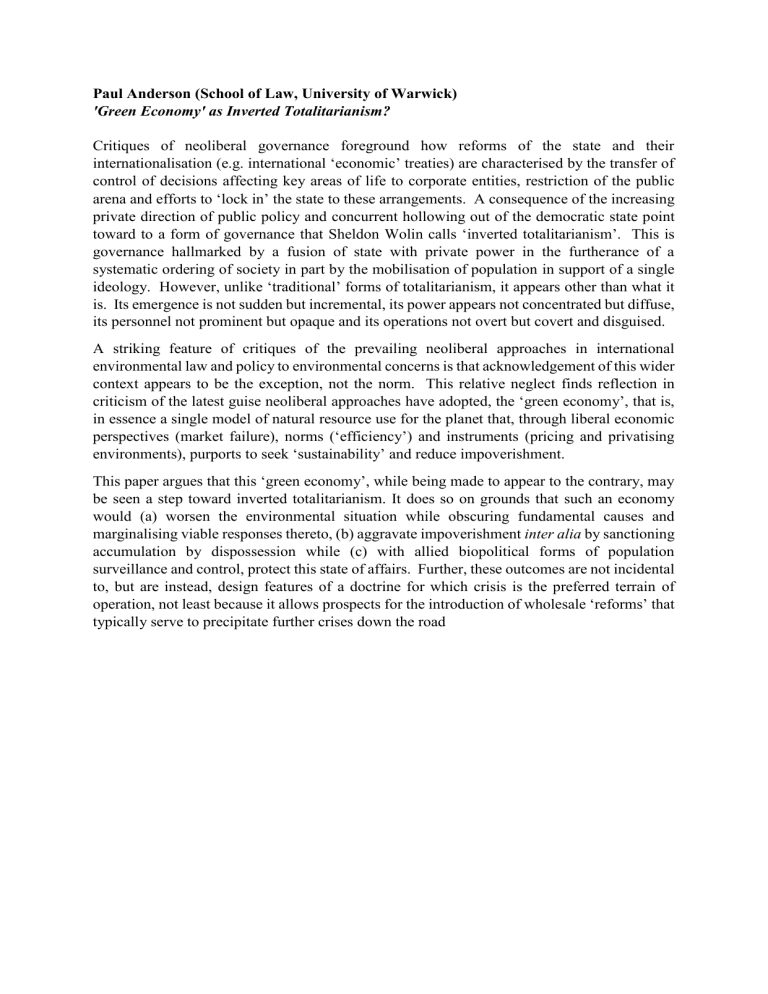
Paul Anderson (School of Law, University of Warwick)
'Green Economy' as Inverted Totalitarianism?
Critiques of neoliberal governance foreground how reforms of the state and their internationalisation (e.g. international ‘economic’ treaties) are characterised by the transfer of control of decisions affecting key areas of life to corporate entities, restriction of the public arena and efforts to ‘lock in’ the state to these arrangements. A consequence of the increasing private direction of public policy and concurrent hollowing out of the democratic state point toward to a form of governance that Sheldon Wolin calls ‘inverted totalitarianism’. This is governance hallmarked by a fusion of state with private power in the furtherance of a systematic ordering of society in part by the mobilisation of population in support of a single ideology. However, unlike ‘traditional’ forms of totalitarianism, it appears other than what it is. Its emergence is not sudden but incremental, its power appears not concentrated but diffuse, its personnel not prominent but opaque and its operations not overt but covert and disguised.
A striking feature of critiques of the prevailing neoliberal approaches in international environmental law and policy to environmental concerns is that acknowledgement of this wider context appears to be the exception, not the norm. This relative neglect finds reflection in criticism of the latest guise neoliberal approaches have adopted, the ‘green economy’, that is, in essence a single model of natural resource use for the planet that, through liberal economic perspectives (market failure), norms (‘efficiency’) and instruments (pricing and privatising environments), purports to seek ‘sustainability’ and reduce impoverishment.
This paper argues that this ‘green economy’, while being made to appear to the contrary, may be seen a step toward inverted totalitarianism. It does so on grounds that such an economy would (a) worsen the environmental situation while obscuring fundamental causes and marginalising viable responses thereto, (b) aggravate impoverishment inter alia by sanctioning accumulation by dispossession while (c) with allied biopolitical forms of population surveillance and control, protect this state of affairs. Further, these outcomes are not incidental to, but are instead, design features of a doctrine for which crisis is the preferred terrain of operation, not least because it allows prospects for the introduction of wholesale ‘reforms’ that typically serve to precipitate further crises down the road
